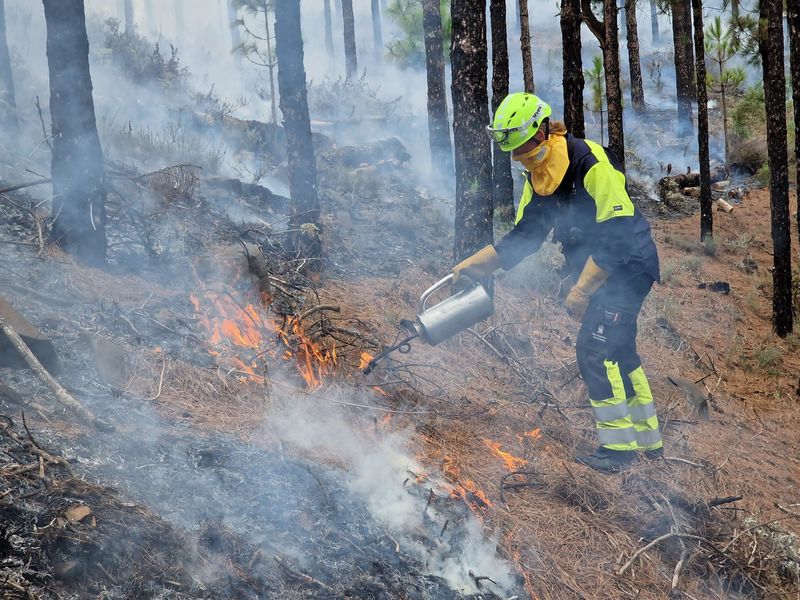Last week, the kick-off meeting of the cross-border project POCTEFA – Desbosiguem! took place, in which the Pau Costa Foundation participates together with the Parc Natural de l’Alt Pirineu, the Parc Naturel des Pyrénées Ariégeoises, the Union des Collectivités Forestières d’Occitanie, the Escola Agrària del Pirineu, the Universitat Politécnica de Catalunya and the Fundació Andorra Recerca Innovació (AR+I). This European project, coordinated by the Centre de Formation Professionnelle et de Promotion de la Agriculture Ariège-Comminges, wants to support the maintenance of open spaces in the Pyrenees, maintaining diversity and grazing, and reducing the risk of forest fire.
Climate change and the lack of forest management contribute to the closure of the forest and the loss of open areas, such as clearings, terraces or small meadows. Rising temperatures and the loss of rural activities make it increasingly difficult to maintain open spaces in the high mountains. The forest expands even in the strips near towns, urbanisations and populations scattered throughout the Pyrenees. These areas, now occupied by forest and bush, had been agricultural plots, moors and pastures, and had a specific biodiversity that we do not find in densely wooded spaces. Likewise, this dynamic represents an increase in the risk and the severity of wildfires, both at the local and landscape scales. The closure of open spaces, in addition to increasing the risk of wildfires, reduces ecological continuity and represents a loss of forage resources on which multifunctional activities such as pastoralism depend, which, at the same time, safeguard this rich and historical mosaic landscape, typical of the Pyrenees.
In this sense, the project promotes collaboration and exchange of experiences between Catalonia, Andorra and France, to provide comprehensive solutions to help the managers of these spaces (natural parks, local public entities, private owners and inhabitants), to make decisions and sustainably manage the territory, fighting the consequences of climate change and the increase in forest density.
Specifically, a good practices manual on the opening and maintenance of open forest spaces will be prepared. The manual will integrate combinations of management techniques of the rural-forest environment, such as clearing, silvopasture, thinning, or prescribed fire. On the other hand, several wildfire scenarios will be modelled, in order to see which ones could most easily contribute to high-intensity wildfires, relating them to the different forest structures and open spaces.
The Foundation and the Parc Natural de l’Alt Pirineu are leading the development of the first Strategic Plan of the Park for the prevention of wildfires, in which fire will also be conceived as a tool for diversification of the forest landscape, similar to the one that has already been developed in the Val d’Aran.
To achieve this, the project will focus on three main areas:
- Analyse the fire regime on both sides of the central Pyrenees at a landscape scale, evaluate its impact on the environment and the territory, and design a cross-border adaptation strategy.
- Identify and develop various methods of reopening fallow lands, reducing forest fuel, and maintaining forests and pastures based on eleven pilot projects.
- Design a toolbox to help decision-making within the framework of restoration actions for areas covered with bushes and trees or of fire prevention, and, at the same time, improve the skills of professionals involved in the maintenance of rural areas.
Desbosiguem! is the first project to be developed within the territorial framework of the Parc Pirinenc de les Tres Nacions, and is included in the European cross-border cooperation programme Interreg POCTEFA 2021-2027. It has a total budget of 638,952.27 euros, of which €65% is financed through the FEDER Fund.






